
Kosovo, Albania & Macedonia Explorer Itinerary
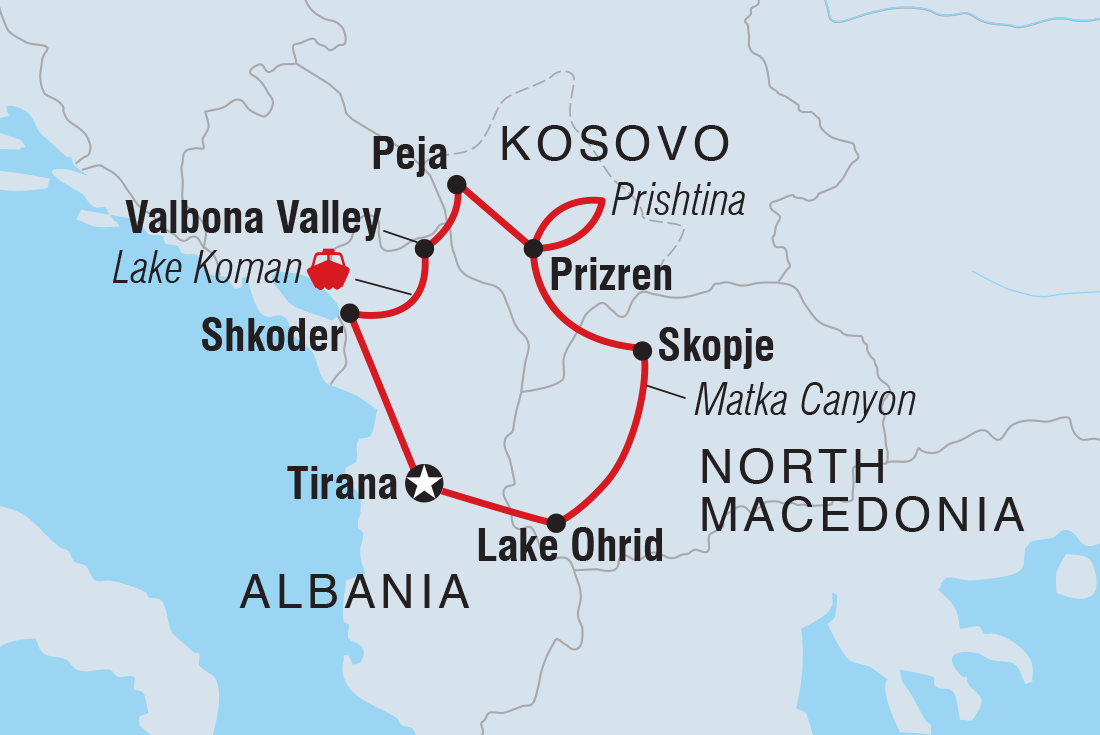


Mire se vini! Welcome to Albania. Your adventure begins in Tirana – the progressive capital city that's working hard to alleviate the Soviet bloc feeling that lingered for so long. If you arrive early, perhaps get your bearings with a walk around town. Tirana is filled with activity, from its traffic to its nightlife, but on its doorstep are mosques, citadels, Ottoman architecture and museums. After the meeting tonight, maybe head out for dinner with your group and get to know each other.
This morning, head out on a leader-led orientation walk of central Tirana. See the architectural influences from Italy and Turkey, visit the Skanderbeg Monument, the mosaic on the National History Museum and the Palace of Culture. The Et'hem Bey Mosque, which sits right on the city's main square, is currently closed for extensive renovation works, but you can still look at the frescoes and portico that depict trees, waterfalls and bridges. After lunch, take a local bus to Shkoder – one of the oldest cities in Europe. When you arrive, head out on a short walk along the Pjaca (the main street), lined with 19th-century architecture and dominated by Ebu Beker Mosque. Later in the afternoon, why not head north of the city to visit the Venetian era Rozafa Castle, set high on a mountain with panoramic views of the Albanian countryside.
Take an early morning transfer to Lake Koman, where you'll board a private boat between Koman and Fierza, in the remote north-eastern corner of the country. Passing through the gorge of the Albanian Alps, you’ll stop for refreshments and a swim along the way. Take in the scenery of cliff walls on both sides of the narrow lake – these mountains that surround the lake can reach over 1700 m and are almost uninhabited. This is one of the most beautiful boat rides you will ever take – think emerald waters, green vegetation and bright, white cliffs. Arrive in Fierza, where you'll be transferred to your guesthouse in Valbona Valley and tuck into your home cooked dinner.
Take an excursion deeper into the remote Valbona Valley and explore the green meadows dotted with traditional houses, farmlands and alpine trees. Due to the remoteness of the region and the lack of tourist infrastructure, today's activities will come as a surprise to all of us, including the leader! You may go for a hike in the surrounding mountains, walking through wide valleys and thick forests, or you might simply hang out in the village with the locals. One of the best things about Albania is the people – their warmth to strangers is infectious and you're bound to find yourself having a chat and swapping stories over a glass of raki or two. This is a great place to discover the history of Albania from the people who have lived through it, and to learn about the local way of life. Perhaps discover more about the stories of bloody feuds, said to be carried out in the name of the Kanun code (the customs that governed all aspects of life in the mountains).
Today, you'll cross the border into Kosovo by private vehicle. Tiny Kosovo is Europe’s newest (official) country and is home to a handful of landlocked mountains, poppy-filled meadows and oak forests in the middle of the Balkans. The shadow of conflict in the late 1990s has kept Kosovo off traveller's radars but today, you’ll feel the shadow lifting. See the Decani Monastery – a place of artistic heritage, but whose symbolic significance as a Serbian Orthodox cultural monument unfortunately makes it vulnerable to destruction. Continue to Peja (Pec in Serbian) – the gateway to the Rugova Mountains and a major agricultural centre. Visit the beautifully restored Peja Bazaar, dating back to Ottoman times, and Bajrakli Mosque. Having been destroyed twice in the last 80 years, the bazaar has been fully rebuilt after the Kosovo War and is one of the many protected monuments in Kosovo.
After breakfast, head to the village of Drelaj, deep in the Rugova Valley. The Rugova Mountains rise over 2400 m and were declared a national park in 2013. This will be your base to explore the surrounding area on a guided hike. The valley is often compared to Switzerland and at the foot of Hjala mountain, you’ll be surrounded by tall grass pastures, wildflowers, simple wooden shacks and the sounds of cow bells drifting through the valley. After the hike, take the chance to rest as you tuck into lunch at a local family home. Head back to the hotel in the early evening and perhaps try the local Birra Peja brewed here in town.
Journey south today, to Kosovo's second biggest (and arguably its most beautiful) city – Prizren. Along the way, stop by Gjakova to walk to the Sufi Tekke of the Halveti Order (one of the Dervish sects). Inside of the tekke, there are graves of all the previous shehs since 1600, when the order was established. After, walk along the Carshia (main street) and stop at the Mosque of Hadumi. If you’re lucky, the main Imam of Gjakova will speak to you and give an Albanian interpretation of Islamic dogmas (principles), with plenty of time for questions. Later, head to Prizren, stopping at a restaurant on the Drini River along the way. When you arrive in Prizen, you’ll head out an orientation walk along the Bistrica River, exploring the city’s famous mosques and abandoned Serbian Orthodox churches.
Today you’ll visit Prizren's 6th-century Kalaja Fortress, which sits on a hilltop above the town. Discover the hidden 43-step staircase for incredible views over the city, then soak up a free day to explore at your own pace. Maybe visit the House of the Albanian League of Prizren, where in 1878 the Assembly of Prizren gathered to consolidate Albanian leaders to unite and protect the country against foreign threats. Perhaps walk upstream along the Bistrica River, where you might meet locals tending to their flocks of sheep. Or get your group together and hire a minibus to go for a wine tasting in the vineyards of Rahovec – this region is known as the gastronomic heart of Prizen, so there’s plenty of wineries and restaurants to explore.
Take a daytrip to Prishtina – the capital of Kosovo is currently reinventing itself as a major commercial centre. First, head to Kosovo Polje (Field of Blackbirds), which the country is named after. There’s a memorial here that commemorates the important 1389 battle of Kosovo – a skirmish that led to the Ottoman Empire finally taking control of this area of the Balkans. Nearby is the tomb of Sultan Murat, leader of the Ottoman Empire in the 14th century. Visit the UNESCO World Heritage-listed Gracanica Monastery, then the afternoon is free to explore as you wish. Maybe visit the Ethnographic Museum, the Sultan Fatih Mosque or the Kosovo Museum. Check out the Newborn Monument, which was unveiled on the day Kosovo declared its independence in 2008. After exploring the city, head to the nearby Bear Sanctuary – a 16-hectare area of woodland and home for rescued dancing bears.
Today you head to North Macedonia – full of scenic mountain backdrops, time-weathered monasteries and lake panoramas. When you arrive, take an orientation walk past Byzantine domes, Turkish baths and the newly built neo-classical buildings. After, wander past the mosques, caravanserais and hammams that fill these winding streets – a testament to Skopje’s Ottoman past. After, maybe visit the Daut Pasha Hammam or journey through the humbling Holocaust Museum to learn how Macedonia suffered during this tragic chapter of history. Lake Ohrid and the surrounding mountain forests are home to some excellent hiking options, so maybe ask your leader about your options this afternoon if you’re feeling active.
Venture out to Matka Canyon – a deep ravine cut into the Suva Mountains by the Treska River. This area is home to several medieval monasteries, caves and over 70 species of endemic butterflies. When you arrive, you have the option to explore the canyon by boat. Alternatively, you can take one of the many nature walks in the canyon or up to tracks that hug the ridge above the valley. Return to Skopje, where the rest of the day is free. Maybe take the Mount Vodno cable car to Millennium Cross, get lost in the narrow lanes of Carsija, or take in the stone bridge over the Vardar River. For dinner this evening, you could head to the Old Bazaar or the restaurants in the Debar Maalo area.
Take a local bus to Ohrid, which sits on a lake with the same name. Europe’s oldest lake, and one of the oldest human settlements in the world, Lake Ohrid has a wealth of historic sites and religious monuments to discover. The town is said to have once been home to 365 churches, one for each day of the year, earning it the nickname ‘the Macedonian Jerusalem’, while historical excavations date back to Neolithic times. Despite being a UNESCO World Heritage site for over 30 years, the town remains under the radar of most tourists. Get your bearings on an orientation walk, then maybe go hunting for a bargain in the Old Bazaar.
Take to the lake on a morning cruise on Lake Ohrid. The rest of the day is free for you to discover the area at your own pace. There are many churches and monasteries to visit, but one of the most popular is the Macedonian Orthodox Church of Sveti Jovana Kaneo – sitting on a rocky outcrop above the town and overlooking the lake. Past the church, you can wander around the back of town, exploring the old walls and fortress. The Sveti Naum Monastery is also a great option, lying on the shores of the lake south of town, with well-kept grounds home to peacocks. The ancient Tsar Samoil’s fortress stands on the top of Ohrid Hill, while a 2000-year-old Roman theatre was uncovered near the Upper Gate – in summer it’s used for concerts and performances.
Say goodbye to the endless blues of the lake and as you head across the border into Albania for your journey back to Tirana. When you arrive, your day is free to explore. Maybe take the cable car up Dajti Mountain for a breathtaking view of the city below. Tonight, perhaps join your group for dinner and head to Blloku (the Block) – once the domain of the Communist party’s inner circle and now home to cafes, restaurants and boutique bars. For something a little more traditional, you could head to an old house restaurant, where the menus are filled with local Albanian recipes.
There are no activities planned for the today and you can depart the accommodation at any time. If you wish to extend your stay in Tirana, just get in touch with your booking agent ahead of time.

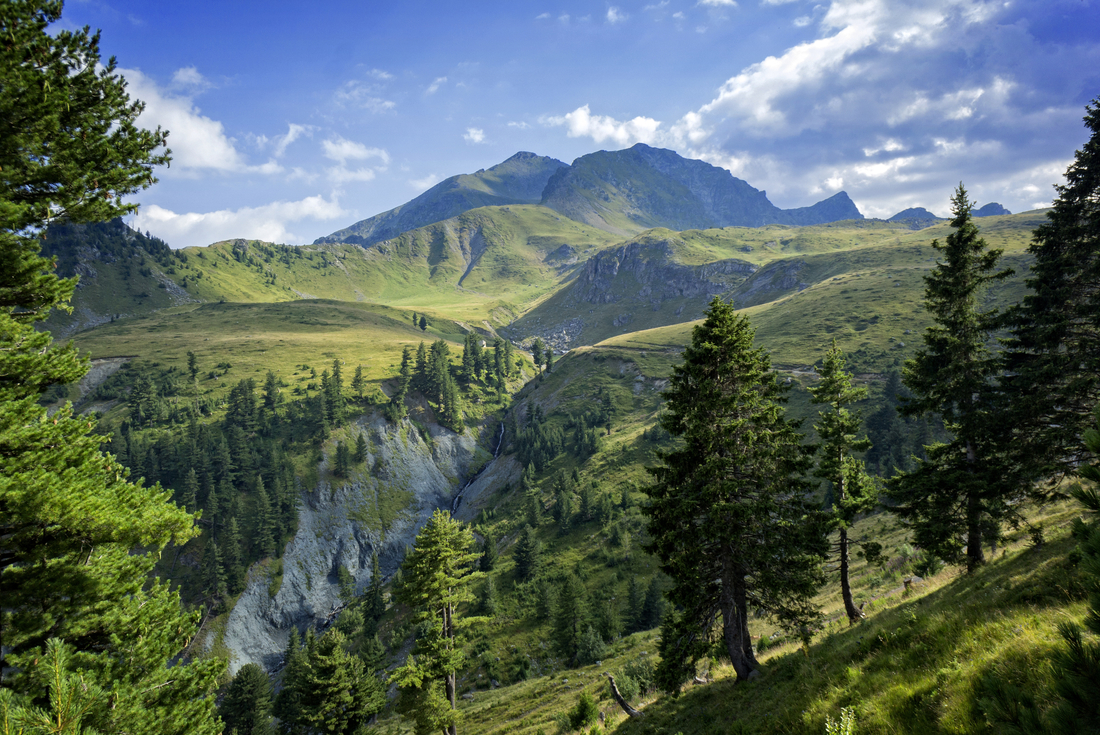
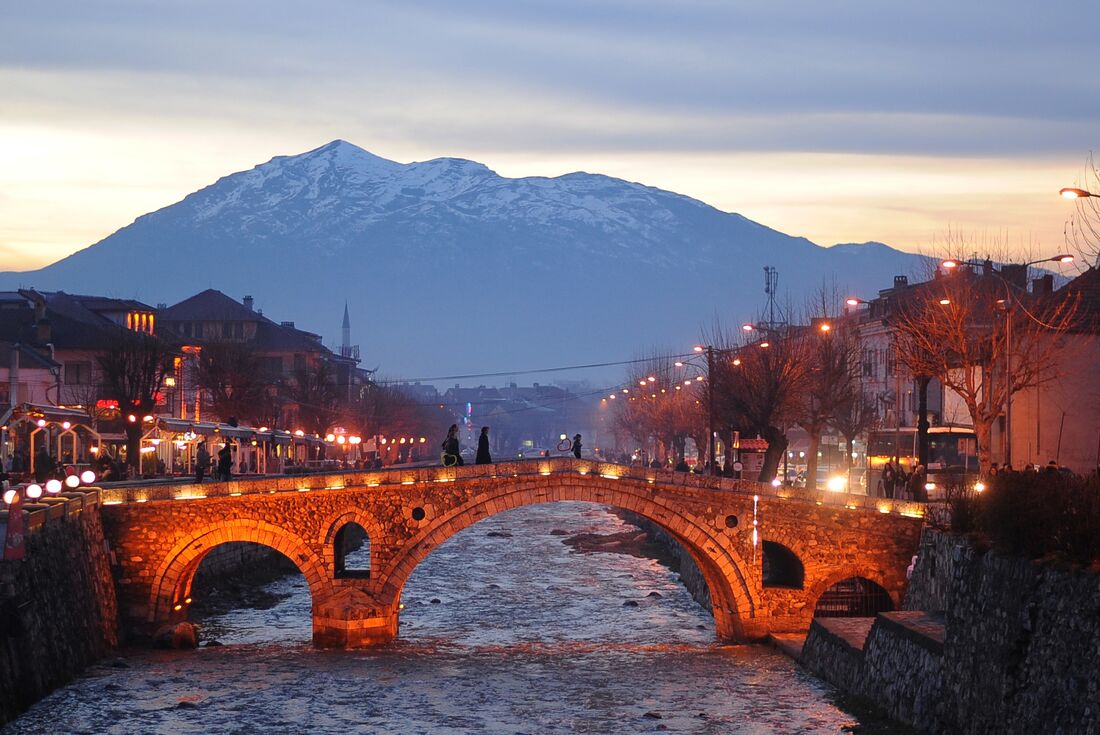
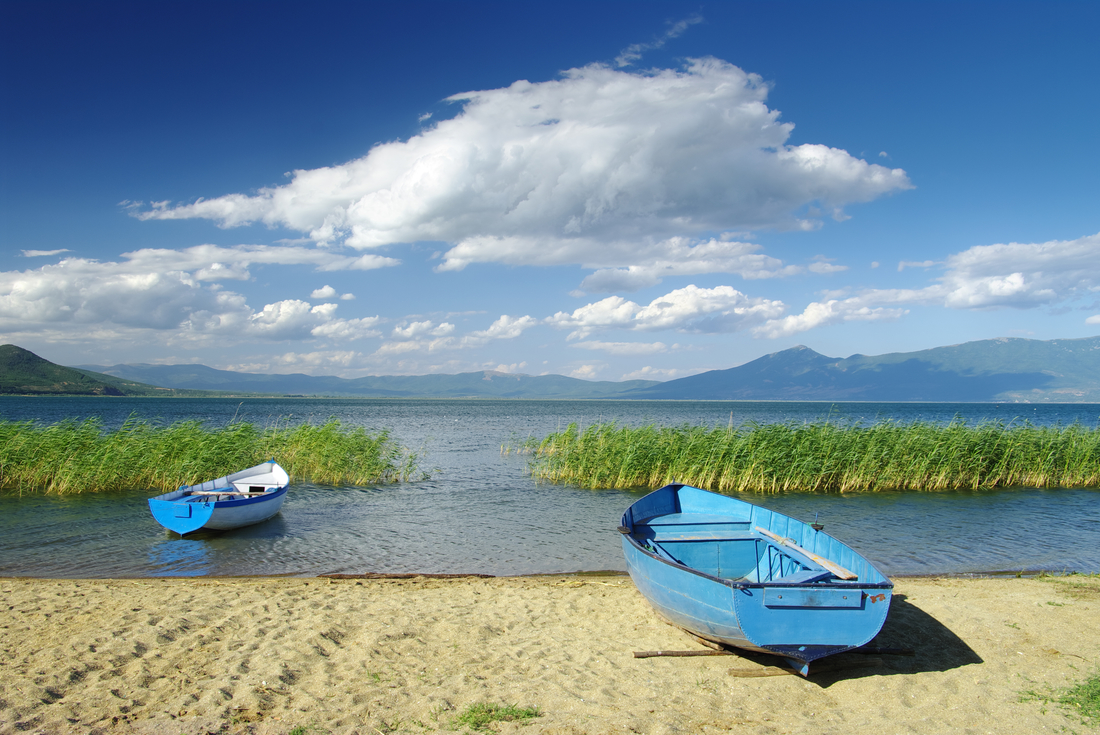
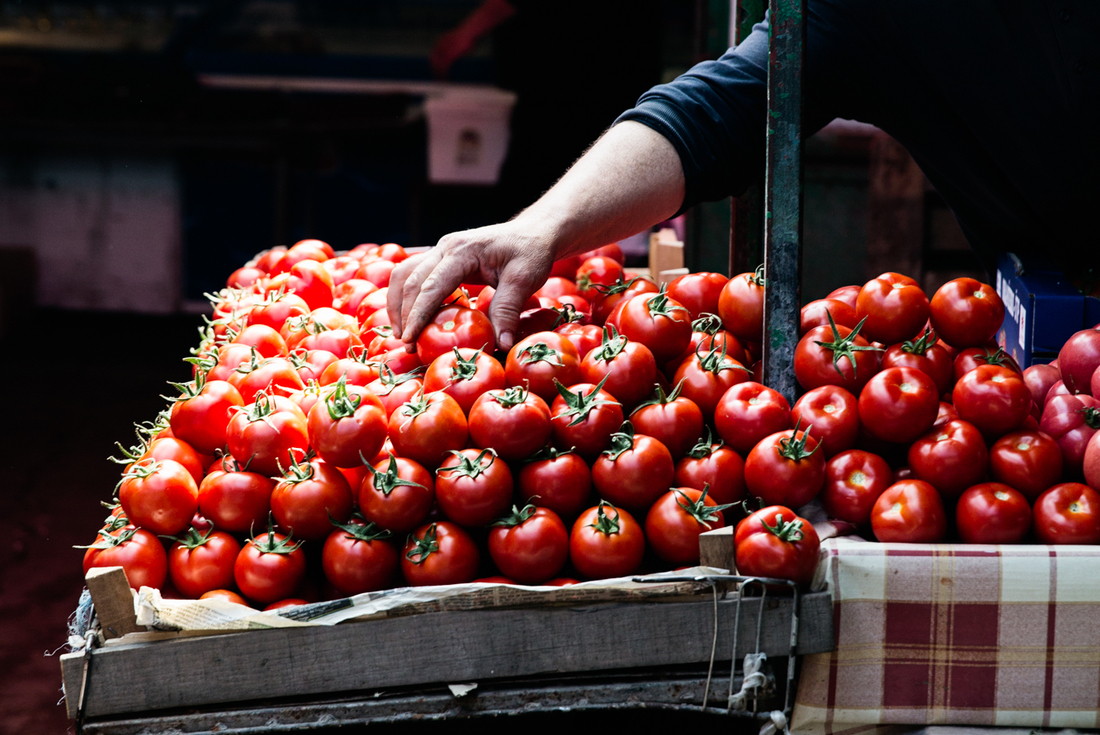
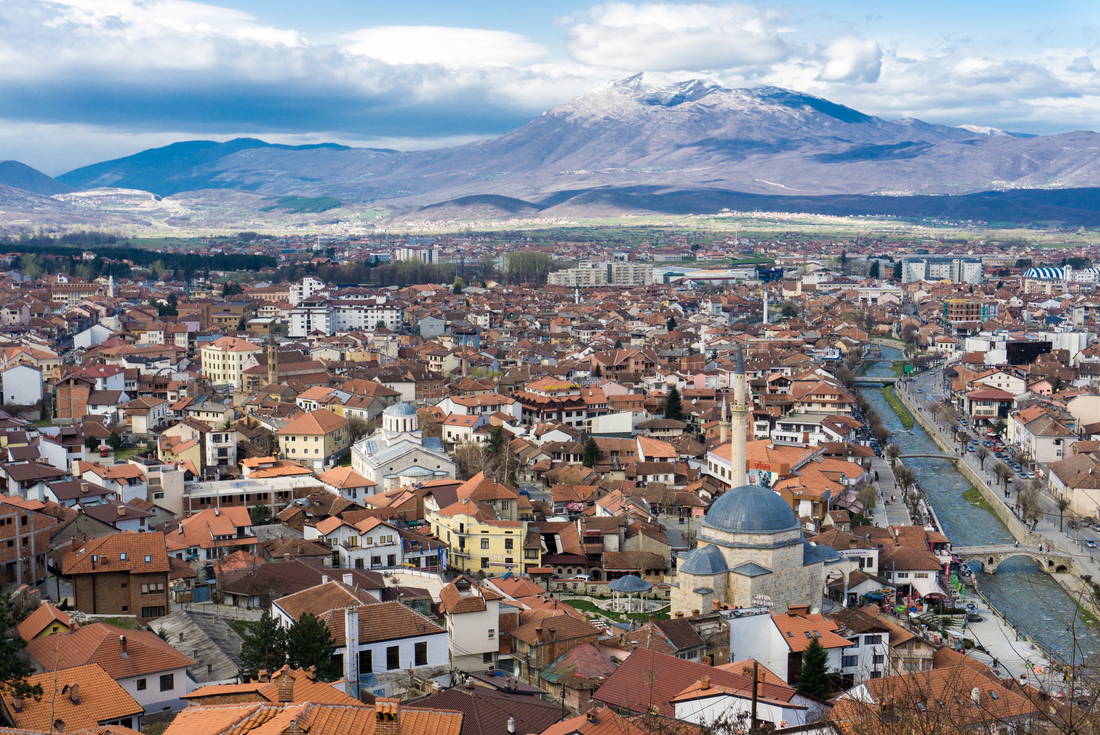
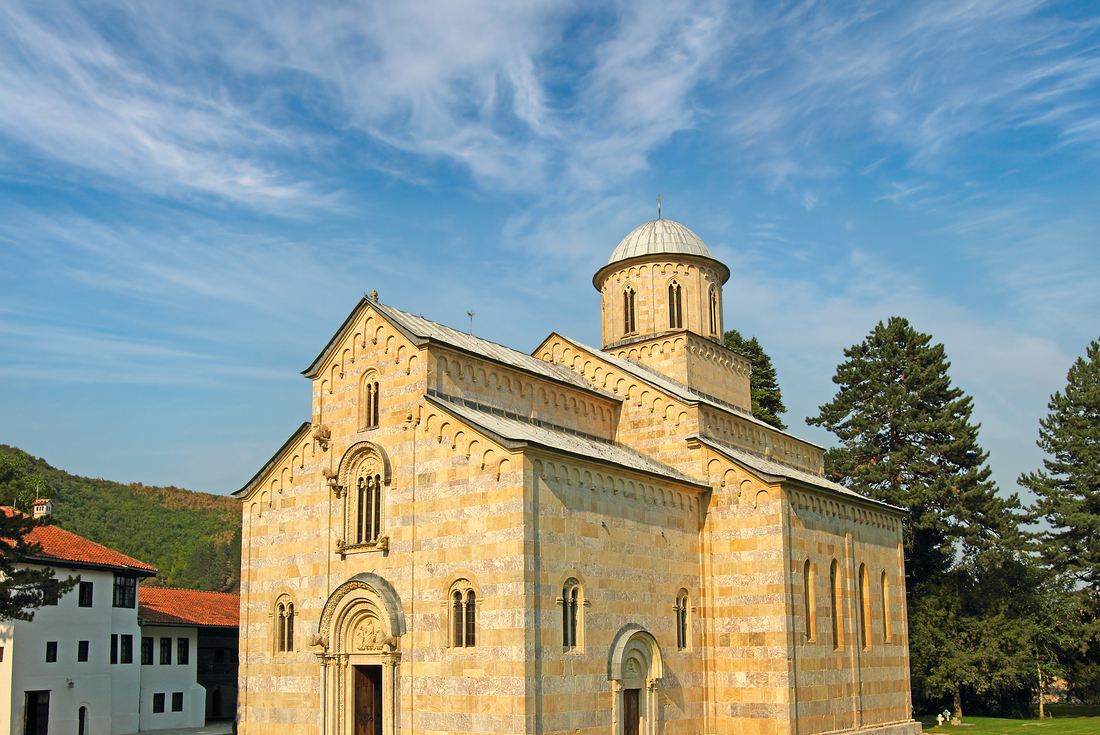
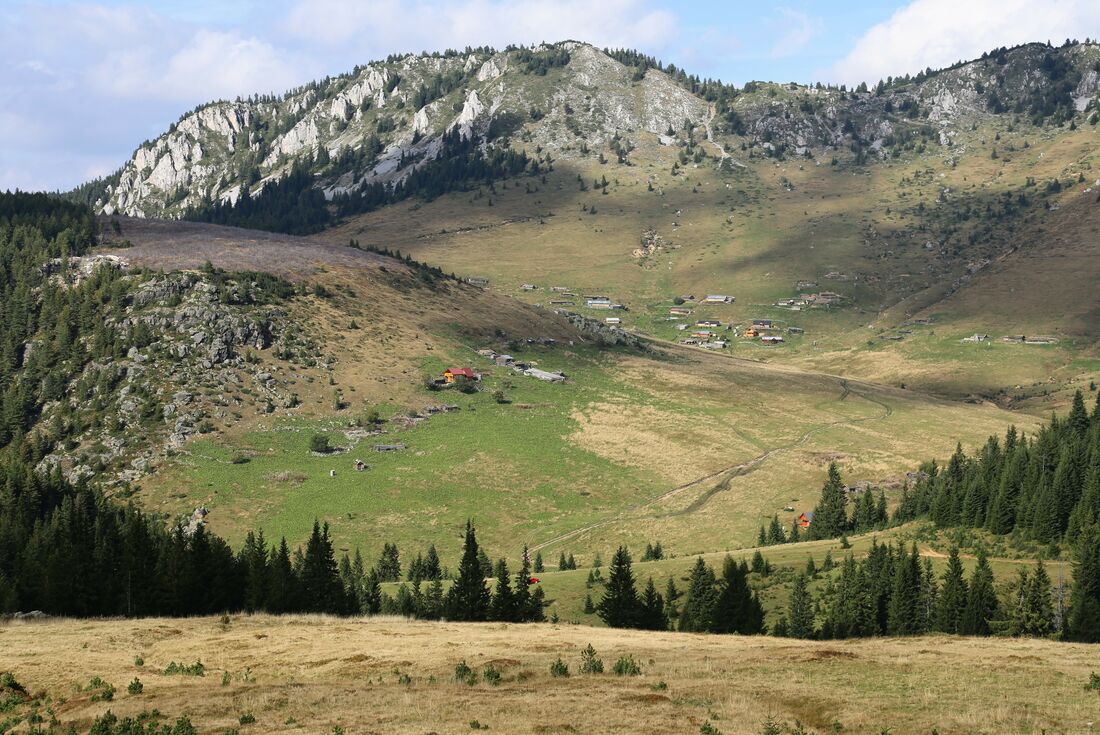
Lake Koman - Private boat ride
Valbona Valley - Village Tour
Valbona Valley - Tea House
Dečani Monastery - UNESCO World Heritage Site
Rugova Valley - Hike including Lunch
Gjakova - Sufi Tekke of the Halveti Order
Gjakova - Hadumi Mosque
Prizren - Kalaja Fortress Visit
Kosovo Polje - Field of the Battle of Blackbirds & Tomb of Sultan Murat
Prishtina - Day Trip
Gracanica - Gracanica Monastery
Prishtina - Bear Sanctuary
Skopje - Matka Canyon visit and Boat Ride
Ohrid - Lake Ohrid Boat Cruise
Explore the remote northern reaches of Albania and take one of the world’s best boat trips with a cruise through the mountainous corridors of Lake Koman.
Experience daily life in the Valbona Valley with a stay at a local guesthouse. Clink glasses with the locals in the village and hike the rugged valley passes.
Sail across the blue waters of Lake Ohrid – one of Europe's oldest lakes. No wonder North Macedonia and Albania share this beautiful attraction!
Step back in time and learn about the infamous Battle of Kosovo on a daytrip to the Field of Blackbirds, before embracing the modern culture in Prishtina – Europe’s youngest capital.
Lose yourself in the Albanian capital of Tirana, full of revitalised urban energy, and join the locals for a coffee and some people-watching.
Freddy's Hotel, Rruga Bardhok Biba 75 , Tirana, 1001, ALBANIA, Phone: 355 682035261
Freddy's Hotel, Rruga Bardhok Biba 75 , Tirana, 1001, ALBANIA, Phone: 355 682035261
1. A single supplement is bookable for this trip, excluding Days 3&4. Availability is limited due to small property we use. Please speak to your booking agent for further information.
While we always endeavour to provide the best possible holiday experience, due to the nature of travel and the areas we visit sometimes things can and do go wrong. Should any issue occur while you are on your trip, it is imperative that you discuss this with your group leader or local representative straight away so that they can do their best to rectify the problem and save any potential negative impact on the rest of your trip.
We recognise that there may be times when your group leader or local representative may not be able to resolve a situation to your satisfaction - if this is the case, please ask the group leader or local representative to speak to their direct manager.
You may also choose to provide details in your online feedback, which we ask you to complete within 30 days of the end of your trip. Please do be aware that it is very difficult for us to provide any practical help after the trip is completed, so informing us while still travelling will give us the opportunity to resolve the issue in real-time., For general contact details please use the following page: https://www.intrepidtravel.com/contact-us, If you have booked an arrival transfer, and you experience severe delays at immigration, baggage collection or customs, or if you are not able to find to the driver, please contact the transfer operator directly on the number listed in the joining point instructions in the section above., In case of a genuine crisis or emergency, you can reach our local office on the numbers below:
, Intrepid's Local Operator: +49 8024 4679 540
Weather in this part of Europe can be unpredictable. Summer temperatures can be extreme in many of the regions visited (over 40°C), which can be uncomfortable. It’s important to use sun protection, wear layers to combat the heat and drink plenty of water. On the other hand, the weather in the mountains can be cold and wet throughout the year. Please carefully consider the time of the year you wish to travel and your suitability to that season., Hotels in Europe often don't have double beds, but rather two single beds that can be pushed together., On this trip, you must pack as lightly as possible because you’ll be expected to carry your own bag, and although you won't be required to walk long distances with your luggage (max 30 minutes), we strongly recommend keeping the weight under 15 kg (33 lb). Most travellers carry their luggage in a backpack, although an overnight bag with a shoulder strap would suffice if you travel lightly. Smaller bags or backpacks with wheels are convenient although we recommend your bag has carry straps to accommodate the cobbled streets, uneven surfaces, stairs and steps you are likely to encounter while carrying your luggage. You'll also need a day pack/bag.
Explore the remote northern reaches of Albania and take one of the world’s best boat trips with a cruise through the mountainous corridors of Lake Koman., Experience daily life in the Valbona Valley with a stay at a local guesthouse. Clink glasses with the locals in the village and hike the rugged valley passes., Sail across the blue waters of Lake Ohrid – one of Europe's oldest lakes. No wonder North Macedonia and Albania share this beautiful attraction!, Step back in time and learn about the infamous Battle of Kosovo on a daytrip to the Field of Blackbirds, before embracing the modern culture in Prishtina – Europe’s youngest capital., Lose yourself in the Albanian capital of Tirana, full of revitalised urban energy, and join the locals for a coffee and some people-watching.
All Intrepid group trips in Europe are accompanied by one of our local European group leaders. ’Local’ in this context means a leader who is European or lives in Europe. The aim of the group leader is to take the hassle out of your travels and to help you have the best trip possible. Intrepid endeavours to provide the services of an experienced leader however, due to the seasonality of travel, rare situations may arise where your leader is new to a particular region or training other group leaders. Your leader takes care of logistics, will provide information on the places you are travelling through, offer suggestions for things to do and see, recommend great local eating venues and introduce you to our local friends. While not being guides in the traditional sense you can expect them to have a broad general knowledge of the places visited on the trip, including historical, cultural, religious and social aspects.
At Intrepid we also aim to support local guides in the individual cities or locations we travel to. If you are interested in delving deeper into the local culture at a specific site or location then your leader can recommend an optional local guide service in most of the main destinations of your trip.
TRAVEL ADVISORIES & ALERTS
We recommend that you check your government's foreign travel advisory for the latest information about the destination before you travel. You will also need to ensure that your travel insurance covers you for all destinations and activities on your trip. We also recommend saving the phone number for emergency consular assistance for your government’s consulate in the destination/s you’ll be travelling. Links to travel advisories and any current travel alerts for our trips can be found here: https://www.intrepidtravel.com/travel-alerts
PERSONAL SAFETY
Ensure you have a secure method of carrying your passport, phone, credit cards and cash while travelling such as a money belt. Leave all other high value items, including jewellery, at home Use safety deposit boxes at hotels to store your valuables when available and ensure your luggage is lockable. Be aware of the risk of pick-pocketing and petty theft. Exercise caution when walking at night, don’t walk alone and stick to well-lit streets wherever possible. Be vigilant on public transport and look out for your fellow travellers. Take precautions such as carrying your bag in front of you and never leaving personal items unattended.
LGBTQIA+ TRAVELLERS
Intrepid welcomes all LGBTQIA+ customers on our trips, however we operate in parts of the world that are less accepting. We support LGBTQIA+ customers to travel to these destinations and are committed to ensuring they face no discrimination on any part of the trip we control. We recommend you visit Equaldex (https://www.equaldex.com/) and your government's foreign travel advice for LGBTQIA+ travellers when choosing your trip., https://www.intrepidtravel.com/safety-guidelines, FIRE PRECAUTIONS
Local laws governing tourism facilities in this region may differ from those in your home country and accommodation we use may not have a fire exit, fire extinguishers or smoke alarms., TRAFFIC AND DRIVING ON THE OTHER SIDE OF THE ROAD:
Depending on where you come from please note that drivers in this part of the world may drive on the opposite side of the road from what you are used to. Look both ways before crossing any road. Traffic can be a little more chaotic than you might be used to at home. Be aware!, PETTY THEFT AND PERSONAL SAFETY
While travelling there is always the risk of pick-pocketing and petty theft, particularly in the more touristy cities. We recommend that you exercise caution when walking alone at night and encourage you to walk together and only on main, well-lit thoroughfares. Be particularly vigilant on public transport. Simple measures like carrying your day pack on your front, not hanging your bag over the back of your chair or on the floor and wearing a money belt will reduce any chance that your valuables should go missing., SEAT BELTS:
Please be aware that local laws governing transportation safety may differ from those in your home country and not all the transport which we use is able to provide seat belts.
PASSPORT
You’ll need a valid passport to travel internationally and most countries require your passport to have a minimum of 6 months validity, so remember to check the expiry date.
We need your passport information to get everything ready for your trip so it’s important that the information on your booking matches your passport exactly. Please take care to provide the correct details. We recommend carrying a copy of the photo page of your passport while travelling and leaving a copy at home with family or friends.
VISAS & ENTRY REQUIREMENTS
Many countries require a visa and obtaining the correct visa for your trip and any countries you may transit through is your responsibility. We recommend you check your visa requirements as soon as you have booked your trip. This will ensure you have time to prepare your documents and for your visa application to be processed. You can check the entry requirements for your nationality on your government's foreign travel advisories, consular websites or on our page here: www.intrepidtravel.com/visa-entry-requirements
Information not available.
Validity: 01 Jan 2026 to 31 Dec 2026
GENERAL HEALTH
All travellers need to be in good physical health in order to participate fully on this trip. For the safety and wellbeing of yourself and others, if you are unwell prior to travelling, please stay at home and contact us to make alternative arrangements.
When selecting your trip please make sure you have read through the itinerary carefully and assess your ability to manage and enjoy our style of travel. Please note that if in the assessment of our group leader or local representative a traveller is unable to complete the itinerary without undue risk to themselves and/or the rest of the group, we reserve the right to exclude them from all or part of a trip without refund.
You should consult your doctor for up-to-date medical travel information or for any necessary vaccinations before departure. We recommend that you carry a first aid kit as well as any personal medical requirements in their original packaging as they may not easily be obtained while travelling. If you are carrying medication, ensure you check your government's foreign travel advice for any local restrictions or requirements.
While travelling with us you'll experience the vast array of wonderful food available in the world. Your group leader will be able to suggest restaurants to try during your trip. To give you maximum flexibility in deciding where, what and with whom to eat, generally not all meals are included in the trip price. This also gives you more budgeting flexibility. As a rule our groups tend to eat together to enable you to taste a larger variety of dishes and enjoy each other's company. There's no obligation to do this though., VEGETARIANS
Vegetarians might find the menu selection in Europe less varied than they would see at home. Vegetarianism is not as common in this region and generally the choices are basic, involving vegetables, soups, salads, bread, cheese, fruit, yoghurt, eggs etc. Vegans and those on gluten-free diets may find this region very challenging and may need to supplement meals with their own supplies from supermarkets and markets. Wherever possible we will cater for dietary needs for any included meals, but there may be times when those with special requirements may need to provide their own., BREAKFASTS
There are some continental breakfasts included on this trip which may simply include bread/toast or pastries, butter, jam, coffee/tea/juice (or similar).
SPENDING MONEY
When it comes to spending money on the trip, every traveller is a little different. You know your spending habits better than we do, so please budget an appropriate amount for things like optional meals, drinks, shopping, optional activities, and laundry. Make sure you have read the itinerary and inclusions thoroughly so you know what is included in the trip price and what you may need to pay for while travelling. , EUROPE
The Euro (EUR) is the official currency in the following destinations: Andorra, Austria, Belgium, Croatia, Cyprus, Estonia, Finland, France, Germany, Greece, Ireland, Italy, Kosovo, Latvia, Lithuania, Luxembourg, Malta, Montenegro, the Netherlands, Portugal, Slovakia, Slovenia, Spain. All other European countries still have their own national currencies.
You can use your credit/debit card in ATMs, which are common throughout Europe. You can obtain EUR cash prior to arriving through normal outlets such as banks and currency exchange offices., Below are any additional currencies used in countries visited on this itinerary., The local currency in Albania is the Lek (ALL)., The local currency in North Macedonia is the Macedonian denar (MKD)., BUDGET
Please budget for additional meals and expenses while on your trip. We suggest EUR 500.00 for meals not included on this trip. Our suggestion is based on past traveller feedback but you may choose to spend more or less., TIPPING
Tipping can be an appropriate way to recognise great service when travelling. While it may not be customary in your home country, it is an entrenched feature of the tourism industry across many of our destinations and is greatly appreciated by the people who take care of you during your travels. It is always best to avoid tipping with coins, very small denomination notes, or dirty and ripped notes, as this can be regarded as an insult rather than the goodwill gesture it is intended to be., We recommend budgeting approximately EUR 10-20 per person per week to tip local service providers for activities included in this trip, in local currencies. This doesn’t include a tip for your leader., YOUR GROUP LEADER OR LOCAL REPRESENTATIVE
Tipping your group leader or local representative is highly appreciated if you feel they’ve provided outstanding services throughout your trip. The amount is entirely a personal preference; however, as a guideline, the recommended amount is 4-7 USD or EUR per traveller per day (in a currency relevant to your destination). Of course, you are free to tip more or less as you see fit, depending on your perception of service quality and the length and involvement of your group leader or local representative on your trip., CONTINGENCY FUNDS
We try to plan for every eventuality, but there are still some things beyond our control. We reserve the right to change an itinerary after departure due to local circumstances or a Force Majeure Event. In such emergency circumstances, the additional cost of any necessary itinerary alterations will be covered by you. Please note we are not responsible for any incidental expenses that may be incurred as a result of the change of itineraries including but not limited to visas, vaccinations or non-refundable flights. Make sure you have access to an extra US$500 for emergencies (e.g. severe weather, natural disasters, civil unrest) or other events that result in unavoidable changes to the itinerary (e.g. transport strikes or cancellations, airport closures). Sometimes these things necessitate last-minute changes to enable our trips to continue to run, and as a result, there may be some extra costs involved. The recommended amount is listed in USD for the relatability of universal travellers, however, local currency may be needed once in the country to cover these costs.
PACKING
On this trip you must pack as lightly as possible because you will be expected to carry your own bag and although you won't be required to walk long distances with your luggage (max 30 minutes), we strongly recommend keeping the weight under 15kg / 33lb. Most travellers carry their luggage in a backpack, although an overnight bag with a shoulder strap would suffice if you travel lightly. Smaller bags or backpacks with wheels are convenient although we recommend your bag has carry straps to accommodate the cobbled streets, uneven surfaces, stairs and steps you are likely to encounter while carrying your luggage. You'll also need a day pack/bag to carry water and a camera etc for day trips. You can find Intrepid's Ultimate Packing List on our website. It should be used as a guide only and isn't intended to be a complete packing list.
, https://www.intrepidtravel.com/packing-list, TRAVELLING ON LOCAL TRANSPORT
It's important that your bags can be locked, as on local transport it may be necessary that your luggage gets stowed separately (and unattended). The smaller your bag the better for you and other passengers. To ensure maximum comfort, try to pack small and light., WATER BOTTLE
Please bring your own water bottle to refill. Although it can be difficult to avoid bottled water when travelling, please use the water dispensers which are provided on some of our vehicles and at some of our accommodation. When unable to avoid bottled water, it is better to buy the largest available and distribute it into your smaller bottle for the day. Some travellers like to bring a bottle with its own filtration system or water purification tablets. If you are walking or trekking as part of your trip, you will need to carry at least 2 litres of water with you., IMAGES FROM HOME
During our trip, there will be many opportunities for you to meet and talk with locals. One way to start any conversation is with pictures. We recommend that you bring some photos/postcards of your family, home, city or country where you live, animals peculiar to your country, etc.
SUMMER
Summer temperatures can be extreme in many of the regions visited (over 40°C/104°F), which can be uncomfortable. It’s important to use sun protection and drink plenty of water. Please carefully consider the time of the year you wish to travel and your suitability to that season.
SHOULDER SEASON
In contrast, weather in shoulder season can be unpredictable, and snow is not unheard of at higher altitudes. If you travel at the start or towards the end of the European season please pack accordingly with warm and/or waterproof clothes (preferably layers). The advantage of travelling during this time is that there are less tourists around.
Intrepid won't tolerate any kind of violence, harassment (whether physical, verbal or sexual), or disrespect toward fellow travellers, our teams or local communities.
To ensure the wellbeing of everyone on the trip, decisions made by your group leader are final.
Romantic relationships between travellers and group leader or local representative are not permitted while on trip.
Any behaviour that prevents your leader from continuing the itinerary as planned, breaks local laws or opposes any of these guidelines may result in Intrepid denying your booking or removing you from the trip.
If something concerns you during your travels, please speak to your group leader immediately. Alternatively, you can contact us on the emergency contact number detailed in the Problems and Emergency Contact Information section of this Essential Trip Information.
OCCASIONAL ALTERNATIVE ACCOMMODATION
The style of accommodation indicated in the day-to-day itinerary is a guideline. On rare occasions, alternative arrangements may need to be made due to the lack of availability of rooms in our usual accommodation. A similar standard of accommodation will be used in these instances.
TWIN SHARE BASIS
Accommodation on this trip is on a twin/multishare basis. We pair up solo travellers with another traveller of the same gender as per the gender marker on each of their passports. Please note there may be times where facilities will be shared rather than ensuite and rare occasions when you share a room with passengers travelling on different Intrepid trips than your own.
CHECK-IN TIME
Throughout the trip we request that our hotels prepare rooms in time for our arrival, especially if we're arriving prior to normal check-in time. However this isn't always possible which means we won't be able to check-in immediately on arrival at some hotels. Instead, we can store our luggage and explore our new destination.
PRE/POST TRIP ACCOMMODATION
If you've purchased pre-trip or post-trip accommodation (if available), you may be required to change rooms from your trip accommodation for these extra nights.
FACILITIES
Your accommodation may not always have private en suite facilities or air-conditioning. European hotels generally don't provide kettles or fridges.
PRIVATE VEHICLES
The main mode of transport on this trip are locally sourced private vehicles. Not all have air-conditioning. On some days we will be covering long distances, which will make these days feel longer, however spectacular views and interesting stops along the way make up for it.
PUBLIC BUSES
This trip covers some distances by public buses. Buses in the Balkans can range from high standard coaches with reclining seats and air-conditioning to Yugoslav era vehicles for shorter distances.
ROAD CONDITIONS
Please note that some of the roads in the region are of poor quality, which makes for a bumpy ride in places. The mountainous topography of the region also means that roads are windy. If you suffer from motion sickness you may want to bring along some medication.
Travel insurance is compulsory on all our trips for those travelling internationally. We require that, at a minimum, you are covered for medical expenses, including emergency repatriation. If you are travelling within your home country or region, please confirm before travel that you are entitled to access the public medical system easily should an accident occur. We strongly recommend all travellers have a policy that also covers personal liability, cancellation, curtailment and loss of luggage or personal effects. For international trips, you will not be permitted to join the group until evidence of travel insurance and the insurance company's 24-hour emergency contact number has been sighted by your group leader or local representative.
If you have credit card insurance, your group leader or local representative will require details of the participating insurer/underwriter, the level of coverage, policy number, and emergency contact number, rather than the bank's name and your credit card details. Please contact your bank for these details prior to arriving in-country.
For travellers who reside within the European Union, Switzerland or the USA, the requirement to purchase travel insurance cannot be compulsory. However, the purchase of travel insurance is still highly recommended, and each country you visit may have its own specific entry requirements. For example, some mandate travel health insurance for all foreign travellers, regardless of their nationality. Travellers from the European Union, Switzerland or the USA who decline travel insurance when travelling outside their home region must sign a Travel Insurance Waiver Form at the Group Meeting, recognizing personal responsibility for emergency medical and repatriation costs should they arise.
For assistance with travel insurance or other services, please visit the link below:
, https://www.intrepidtravel.com/booking-resources/our-services
As you travel on a group trip you will be exposed to all the pleasures and maybe some of the frustrations of travelling in a group. Your fellow travellers will probably come from all corners of the world and likely a range of age groups too. We ask you to be understanding of the various needs and preferences of your group - patience with your fellow travellers is sometimes required for the benefit of everyone's travel experience. Remember too that you have responsibilities to the group. If you are requested to be at a place at a certain time, ensure that you don't keep the rest of the group waiting. We have found time and time again that the very best trips we operate are those where the dynamics within the group work well - this takes just a little effort on your part. Due to privacy reasons, we are unable to provide you with contact details and any personal information about your fellow travellers booked on your trip prior to departure., SOLO TRAVELLERS
On our trips, rooming is organised on a twin-share basis. We pair up solo travellers with another traveller of the same gender, as per the gender marker on each of their passports.
We also offer an optional single supplement on most trips for travellers who prefer to have their own room. This only applies to accommodation during the tour. Pre-trip and post-trip accommodation booked through us will always be on a single-room basis.
On a small selection of trips some accommodation will be open-gender and multishare, such as a felucca in Egypt or an overnight train in Vietnam. Please review the Accommodation section of the Essential Trip Information for details about your trip.
LGBTQIA+ TRAVELLERS
We strive to create a safe and inclusive environment for everyone. If your gender identity differs from what is indicated on your passport, please contact us so that we can discuss rooming options with you.
ITINERARY CHANGES
Our itineraries are updated regularly throughout the year based on customer feedback and to reflect the current situation in each destination. The information included in this Essential Trip Information may therefore differ from when you first booked your trip. It's important that you review this information prior to travel so that you have the latest updates. Due to weather, local conditions, transport schedules, public holidays, political unrest or other factors, further changes may be necessary to your itinerary once in-country. Your group leader or local representative will keep you up to date with any such changes once your trip is underway and has the authority to amend or cancel any part of the trip itinerary if deemed necessary due to safety concerns.
, OPTIONAL ACTIVITIES
A selection of optional activities that have been popular with past travellers are listed in the day-to-day itinerary. This isn't an exhaustive list and should be used as a guide only for some of what might be available. Prices are approximate, are for entrance fees only, and don’t include transport to and from the sites or local guides unless indicated. All activities are subject to availability, and maybe on a join-in basis. It may not be possible to do all the activities listed in the time available at each destination, so some pre-planning for what you are most interested in is advised. When it's recommended that travellers pre-book these activities, look for a note in the Special Information section of the day-to-day itinerary. For most, they can either be organised independently on the day, or let your group leader or local representative know you are interested at the Welcome Meeting and they can assist.
Where activities are considered medium or high risk, we work with operators whose safety and credentials we have sighted and assessed. Although it is possible that you may find the same activity cheaper with another operator on the ground, we cannot vouch for the safety or quality of that operator. Medium and high-risk activities not listed above have not been assessed by us and as such our staff and group leader or local representative are unable to assist you with organising these activities. Activities that contravene our Responsible Travel policies are also not listed. Please remember that the decision to partake in any activity not listed is at your own discretion and risk.